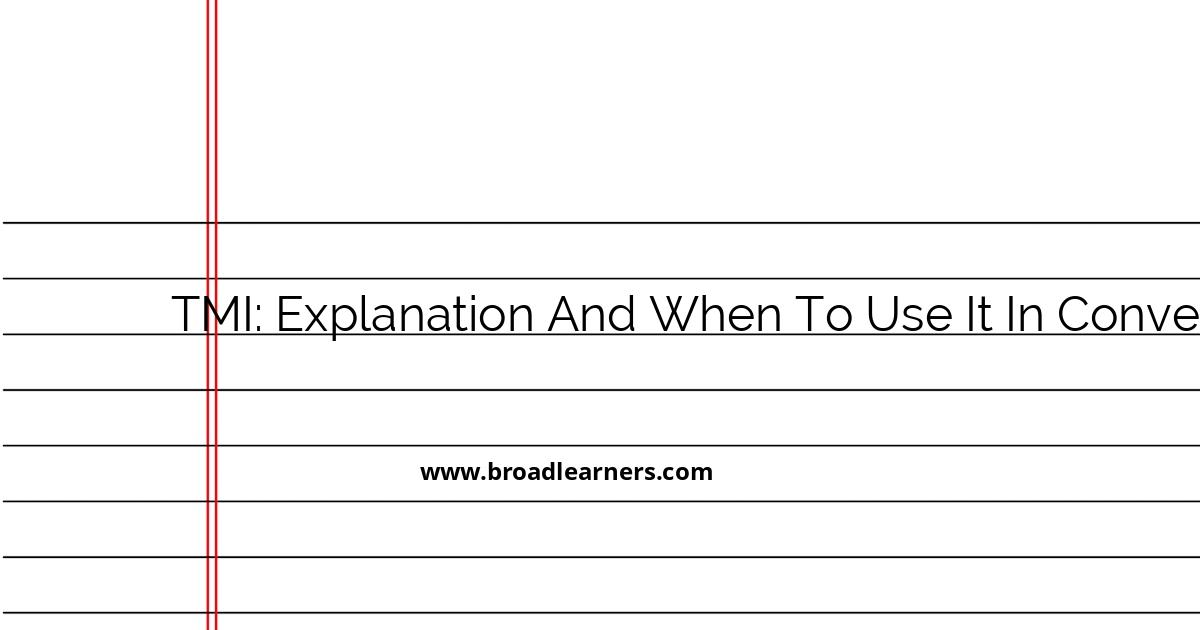The acronym 'TMI' stands for 'Too Much Information.' It is commonly used in casual conversations and online communications to indicate that someone has shared information that is excessive, overly detailed, or unnecessary for the situation at hand. Below, we delve into the meaning, usage, and appropriate contexts for utilizing 'TMI' in conversations:
- Definition:
- 'TMI' is an informal way of indicating that the details provided are more than what the listener or reader needed to know. It reflects a sense of oversharing.
When to Use 'TMI'
It's essential to use 'TMI' at the right moments in conversations where the information shared exceeds what is necessary or appropriate. Here are some scenarios in which the expression might be appropriate:
- Personal Stories that are Too Detailed:
- In Casual Group Chats:
- During Professional Settings with Inappropriate Sharing:
When someone shares an anecdote with intimate or overly personal details, you might interject with 'TMI' as a humorous or light-hearted way to indicate that you wish the speaker had kept some details private.
Example:
"And then I spent two hours describing my entire medical history, and..."
"Oh, TMI! I didn’t need all the details. Just tell me how your appointment went overall."
When engaging in online group chats or social media where the conversation is light and someone types a detailed message about a personal or embarrassing topic, 'TMI' is often used humorously.
Example:
"This weekend, I had a stomach bug, and I won't go into details, but let's just say it was a rough night."
"TMI! Hope you're feeling better now!"
On occasions when a colleague shares more about their personal life than what is considered appropriate for the workplace, 'TMI' can be a discreet cue to steer back to professional matters.
Example:
"I couldn’t focus on the presentation because my baby was up all night crying, and I ended up..."
"TMI! Maybe you should grab some coffee. Let's review the meeting agenda."
While 'TMI' is a relatable and sometimes humorous expression, it is important to use it thoughtfully and contextually. It should always be delivered in good spirit, being mindful of the other party’s feelings. Inappropriate or excessive usage might offend someone who was merely trying to share or entertain. Understanding when and how to use 'TMI' reinforces its role as a tool for maintaining conversational boundaries while fostering friendly and personal communication.

Did I miss anything? Respond below